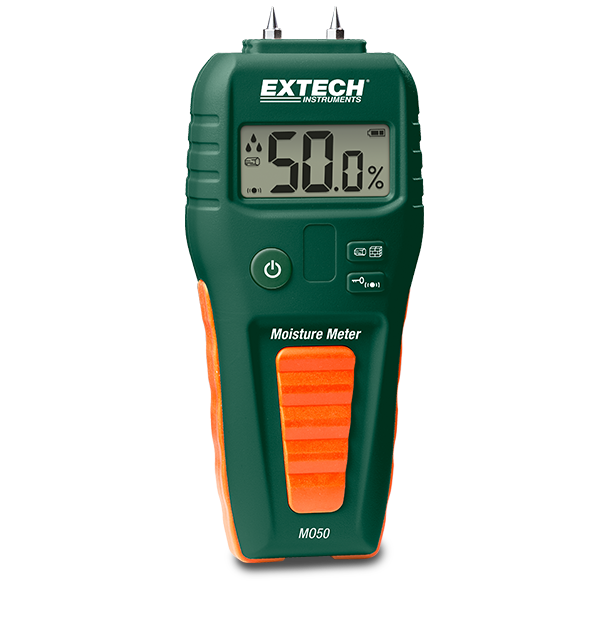Why Every House Owner Demands a Moisture Meter: Trick Benefits and Attributes
Why Every House Owner Demands a Moisture Meter: Trick Benefits and Attributes
Blog Article
The Ultimate Guide to Moisture Meters: A Comprehensive Review and How They Can Save You Cash
In the world of building upkeep, construction, and numerous markets, the significance of accurately measuring dampness degrees can not be overstated. Moisture meters act as important tools in detecting and checking moisture material in products, helping in stopping costly damages and ensuring the quality of products. Comprehending the subtleties of various sorts of dampness meters, their applications, and the prospective cost-saving advantages they provide can be a game-changer for professionals and services alike. Uncovering exactly how these tools can not only enhance processes however additionally add to financial savings is a trip worth starting.
Kinds Of Moisture Meters
Numerous kinds of moisture meters are offered for various applications in various sectors. One common kind is the pin-type wetness meter, which gauges the electrical resistance between 2 pins put right into a product. This kind is suitable for wood, drywall, and other building products. Pinless wetness meters, on the various other hand, use electromagnetic sensing unit plates to scan a larger location without causing damage to the product's surface area. Moisture Meter. These meters are optimal for promptly examining moisture degrees in big locations such as floorings and wall surfaces.

Infrared wetness meters gauge the thermal residential properties of a material to identify its dampness content non-invasively, making them beneficial for applications where pin or pinless meters may not be ideal. Understanding the various types of wetness meters readily available can help sectors choose the most ideal tool for their particular dampness measurement demands.

Benefits of Making Use Of Dampness Meters
Wetness meters provide indispensable advantages in accurately assessing and keeping track of moisture levels in diverse products and settings. One of the main benefits of using moisture meters is the prevention of possible damages created by excess wetness.
Furthermore, making use of wetness meters can result in enhanced energy performance. By recognizing locations with high dampness levels, such as leaks or inadequate insulation, adjustments can be made to boost power preservation and lower utility costs. In farming setups, wetness meters play a vital duty in enhancing plant returns by allowing farmers to keep track of dirt moisture levels and make informed watering choices. Generally, the advantages of making use of dampness meters extend throughout different industries, giving cost-efficient options and promoting far better high quality control practices.
Just How to Choose the Right Wetness Meter
Selecting the ideal moisture meter involves considering vital elements such as material compatibility, dimension array, and calibration accuracy. When choosing a wetness meter, it's vital to ensure that the meter is appropriate for the details product you will certainly be testing. Different materials have varying electrical residential or commercial properties that can impact wetness readings, so choosing a meter created for your product is crucial for accurate results. Additionally, consider the measurement series of the wetness meter. Guarantee that the meter can find dampness degrees within the variety needed for your applications. Calibration precision is one more important aspect to bear in mind. Go with a dampness meter with dependable calibration to guarantee accurate and consistent readings. Some meters may require periodic calibration changes, so recognizing the calibration procedure is necessary. By carefully evaluating these factors, you can pick a moisture meter that meets your needs and provides accurate moisture measurements for your jobs.
Proper Techniques for Dampness Meter Usage

Expense Cost Savings With Wetness Meter Applications
Just how can the critical application of moisture meters lead to significant cost financial savings across numerous industries? In the farming market, dampness meters aid in determining the optimum time for harvesting plants, avoiding excess or over-drying wetness that can affect the final item's quality.
In a similar way, in construction, dampness meters help stop costly damages by discovering moisture levels in structure materials, such as wood or concrete, which can bring about structural problems otherwise dealt with without delay. By identifying issue locations early on, contractors can take restorative actions to avoid substantial fixings or replacements, eventually conserving money and time.
Additionally, in the food handling sector, wetness meters are crucial for monitoring product high quality and ensuring compliance with security laws. By accurately determining dampness content in foodstuff, manufacturers can protect against wasting, keep freshness, and minimize waste, causing considerable cost financial savings. In general, the critical application of dampness meters is a valuable financial investment that can bring about significant cost reductions and boosted effectiveness throughout numerous markets.
Conclusion
Finally, dampness meters are useful devices for finding and measuring wetness levels in different products. By utilizing the right moisture meter and following proper techniques, users can efficiently avoid expensive damages triggered by excess wetness. Investing in a quality moisture meter can lead to significant expense savings in the long run by identifying possible issues at an early stage and allowing prompt remediation. Inevitably, dampness meters are crucial tools for keeping the stability and durability of structures and materials.
Moisture meters offer as essential devices in identifying and keeping an eye on moisture content in materials, assisting in avoiding expensive problems and guaranteeing the top quality of items. Infrared moisture meters determine the thermal residential properties of a product to determine its wetness web content non-invasively, making them useful for applications where pin or pinless meters might not be ideal.Moisture meters provide very useful advantages in precisely examining and monitoring dampness levels in diverse products and settings. In farming setups, moisture meters play an important function in maximizing plant yields by allowing farmers to keep an Check This Out eye on dirt moisture levels more and make notified watering choices.In conclusion, moisture meters are important tools for detecting and gauging moisture degrees in numerous products.
Report this page